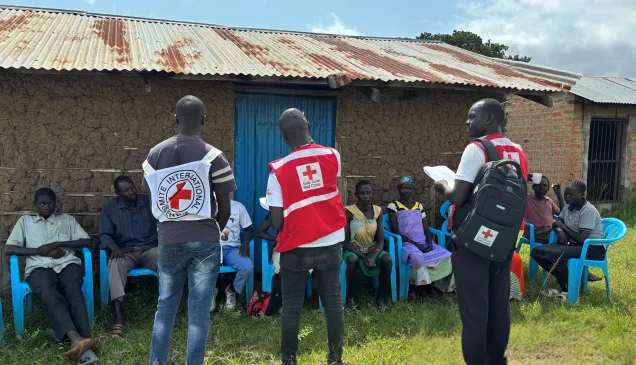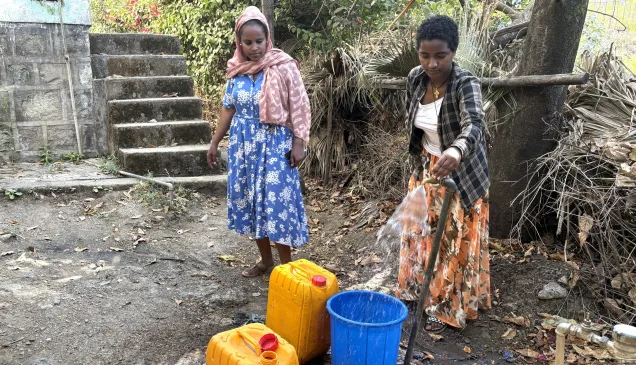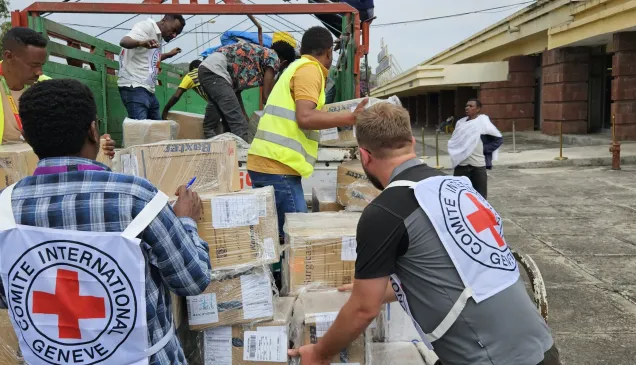Ethiopia: ICRC, ERCS provide livelihood support for 25,500 returnees
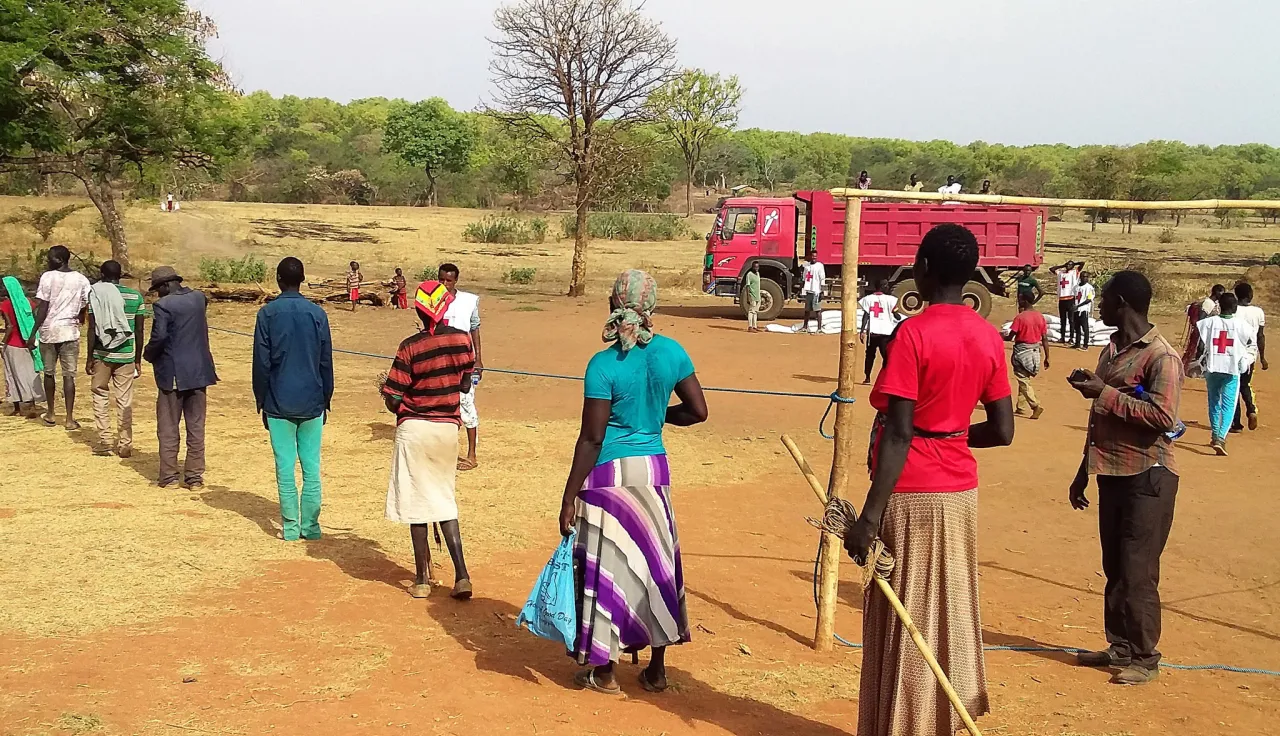
Life doesn't stop because of coronavirus, nor do the needs of displaced people. Hence, it is all the more important for the ICRC, together with the Ethiopian Red Cross Society (ERCS), to continue providing assistance to farmers affected by ethnic violence in Ethiopia.
"People displaced by conflict are also vulnerable to the impact of infectious diseases. In this case, the compounded effect of violence and infectious disease can be overwhelming for remote communities in violence-ridden places," remarked Julien Lerisson, the head of the ICRC delegation in Ethiopia.
In April 2020, the ICRC and ERCS reached 4,250 households with livelihood support (25,500 family members) affected by inter-communal clashes in western Ethiopia. The recipient communities are living in districts of Haro Limmu (Oromia Region) and Yaso (Benishangul-Gumuz Region).
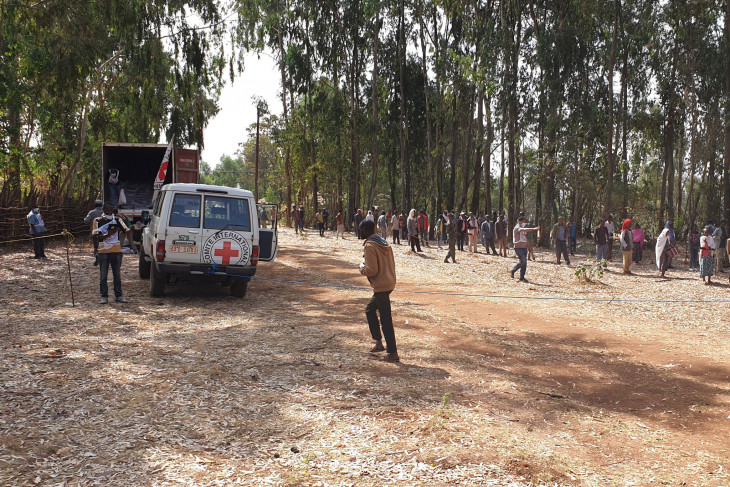
Members of the affected communities in Haro Limu district receive seeds, west Ethiopia, 2020. Hussein Ibrahim RASOOL / ICRC
In Yaso district, 2,000 affected households were provided with 25 kilograms of maize and 25 kilograms of haricot bean seeds. In addition to the seeds, each household received a cash grant amounting to 1,400 Birr which will be used to cover all costs related to farming activities, like preparation of land. Some 2,250 affected families Haro Limu were provided with 12.5 kilograms of maize and 25 kilograms of teff seeds and 1,000 Birr each, according to Tagash Zememdagegnehu, an economic security field officer working for the ICRC.
"In order to reduce the risk of coronavirus infection during the distribution, we exerted maximum effort to lineup the recipients in accordance with required physical distance," remarked Tagash.

Tezgera Jara with his wife and their six children in Yaso zone, 2020. Abdalla Mohamed Said MOHAMED / ICRC
When the intercommunal clashes erupted, 30-year-old Tezgera Jara fled with his family to the neighbouring district, Haro Limmu. Their house and farmland were destroyed while their cattle were looted.
"As soon as the situation improved, we came back and rebuilt our house thanks to the assistance (non-food items, including shelter) from the Red Cross. Our three hectares of farmland is ready now, and we plan to cultivate maize and haricot beans," said Tezgera.
His wife, 25-year-old Dirirbe Duresa, gave birth recently to their sixth child."If the harvest is good, we will buy an ox to help us farm," he said.
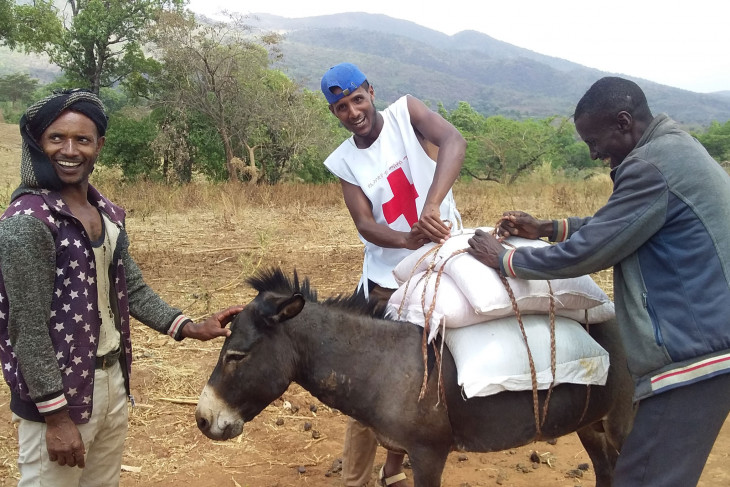
Tezgera Jara (left) receives seeds in Yaso zone, 2020. Abdalla Mohamed Said MOHAMED / ICRC
In Ethiopia, through its Economic Security programme, the ICRC provides essential household items, seeds and tools and cash grants to people affected by ethnic conflict with an aim to restore their livelihoods.

